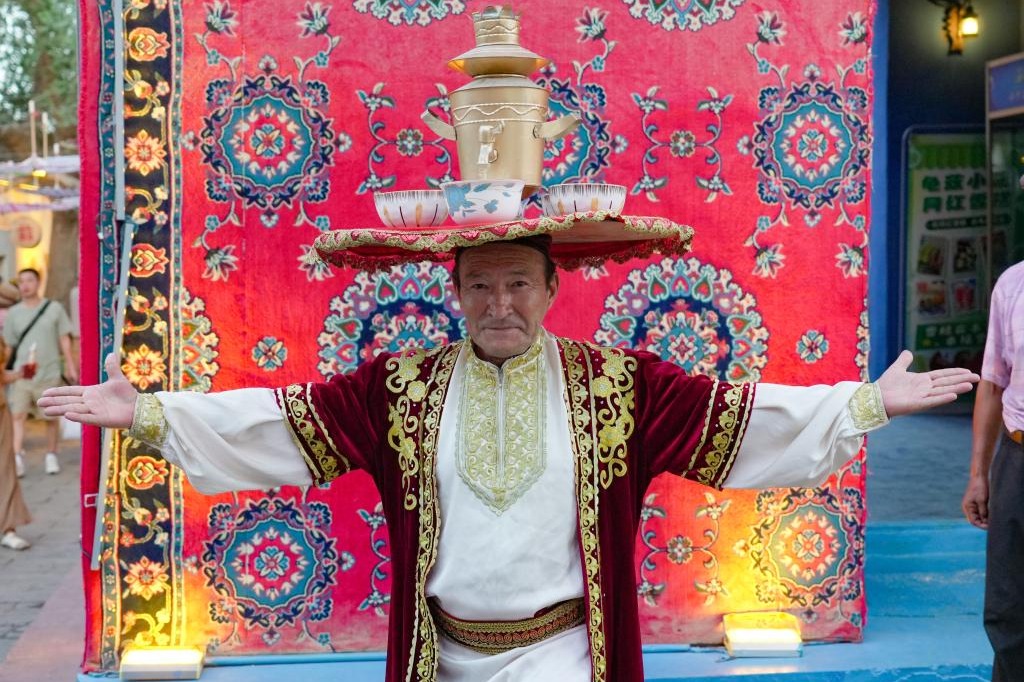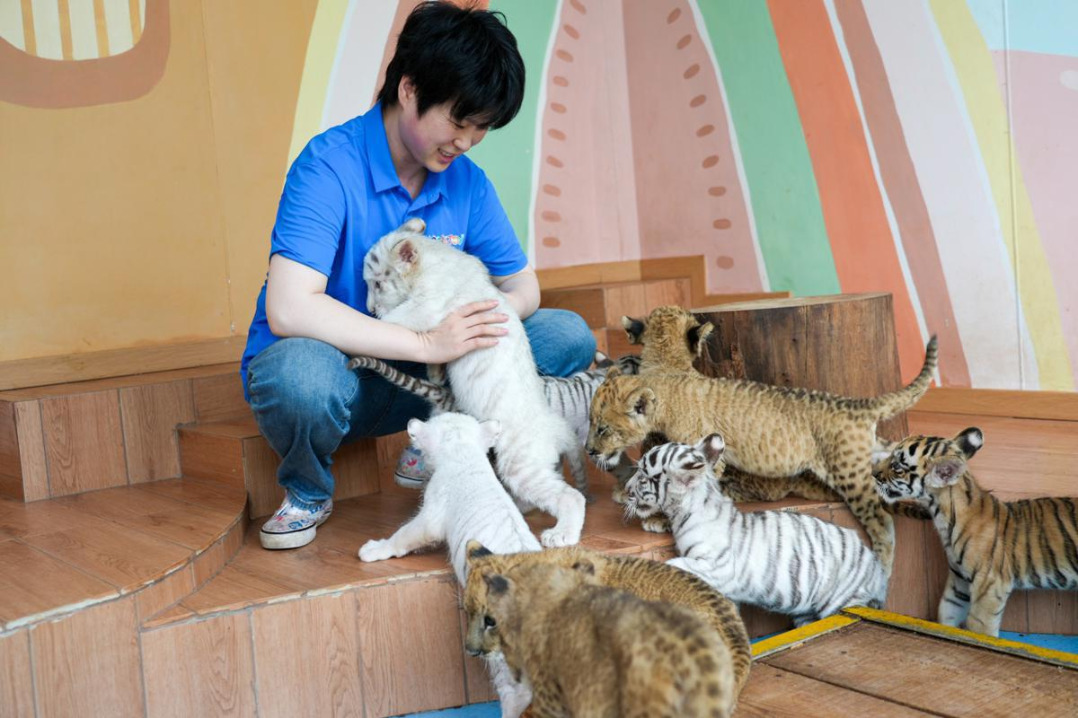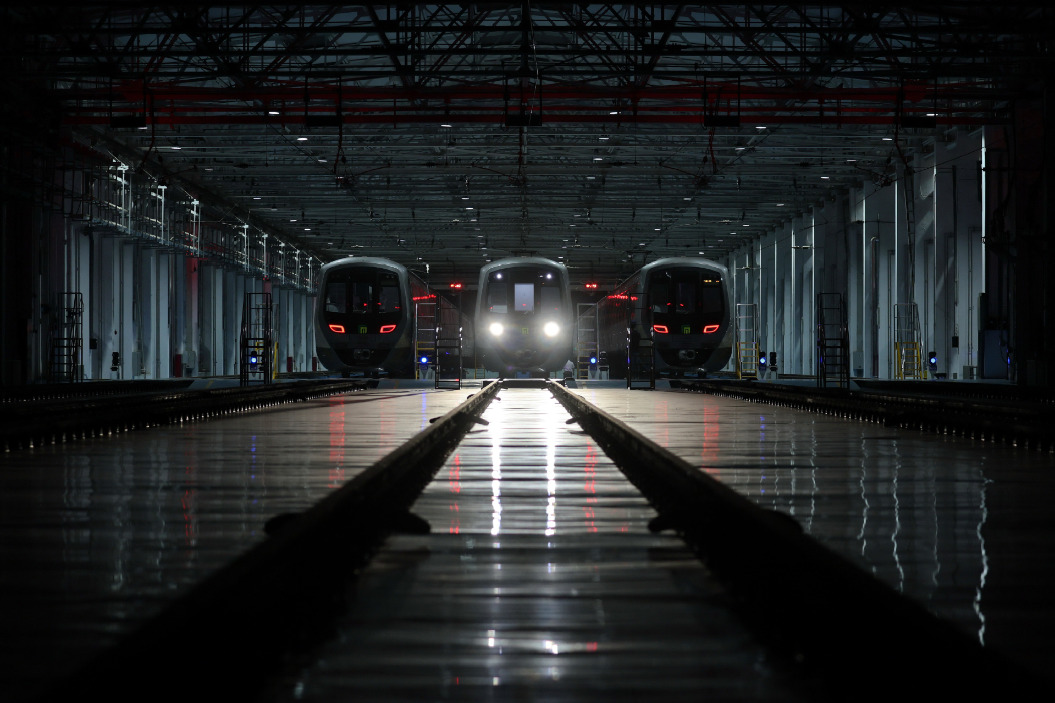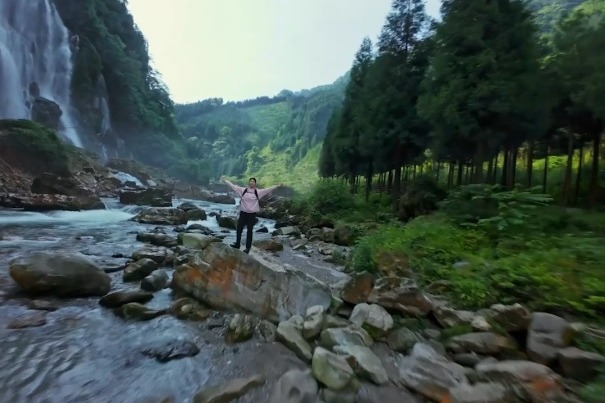Xi Story: A champion for cultural exchanges between China, Latin America

BEIJING -- This year, many people in China were charmed by the ancient Inca civilization at an exhibition held in the southern Chinese metropolis of Shenzhen.
The artifacts, ranging from leopard-print pottery and stone slabs adorned with mythical creatures to intricately crafted figurines, were shipped to China from 14 museums across Peru. Initially set to run from April to August, the exhibition was extended until October because of its popularity.
The success of the exhibition underscores the vibrant cultural ties between China and Latin America, which are both home to some of the world's oldest and most influential civilizations.
On Wednesday, Chinese President Xi Jinping headed to the region for the APEC and G20 events, as well as state visits to Peru and Brazil. This marks his sixth trip to the region as China's head of state.
A strong advocate of cultural exchange, Xi has long lauded Latin America's rich history and civilizations. His visits to exhibitions, historical sites and cultural events in recent years show a genuine commitment to fostering understanding between different cultures.
In a speech delivered at the Peruvian Congress on Nov 21, 2016, Xi expressed his admiration for the Inca civilization, praising the magnificence of Machu Picchu, the mesmerizing Nazca Lines, and the advanced local pottery, metallurgy and textile techniques. "These achievements continue to radiate the brilliance of wisdom," he said.
On the same trip, Xi and his wife, Peng Liyuan, joined the then Peruvian first couple at the closing ceremony of the China-Latin America Cultural Exchange Year, an initiative he had proposed during a previous trip to the continent in 2014.
At a museum in Lima where the ceremony was held, the leaders stopped to carefully examine a chart illustrating the parallels between Chinese and Latin American cultures.
Over the millennia that the Chinese nation was building its rich and enduring civilization in East Asia, the people of Latin America were shaping the vibrant cultures of the Maya, Inca, and Aztec empires.
Conversing with his Peruvian counterpart, Xi explained the origin of the oracle-bone script character "mu," which translates to "eye." And gesturing to an exhibit from the Terracotta Warriors on display at the Peruvian museum, he said, "This comes from the birthplace of the Chinese civilization, Shaanxi." He added, "It is also my hometown."
As the evening settled in, the sounds of bamboo flutes and pan pipes filled the air. Xi gave a speech, emphasizing mutual respect, equality and shared benefits. He called for mutual learning between civilizations to grow friendships, advance human society and promote world peace.
For Mexican archaeologist Jose Huchim Herrera, the day he guided Xi around the ancient Maya ruins of Chichen Itza in June 2013 was an experience forever etched into the fabric of his mind.
Located some 1,400 kilometers east of Mexico City, Chichen Itza has stepped pyramids, temples, columned arcades and other stone structures sacred to the Maya. It is one of the most visited archaeological sites in Mexico.
Xi showed keen curiosity about the civilization, recalled Huchim Herrera. From traditional Maya rituals to the history of a local sport, the Chinese president listened intently throughout the tour, inquiring about the meaning behind the relief sculpture carved on the foundations of the ruins and asking other detailed questions.
The following year, China hosted an exhibition of the Maya civilization at the national museum in Beijing. Xi attended the opening ceremony, hailing the exhibition as a grand cultural exchange event that allowed people to transcend time and borders, appreciate different civilizations, and renew friendships.
For the Chinese president, civilizations become richer and more colorful through exchanges and mutual learning. Over the years, he has actively engaged with cultures of the places he visited and genuinely interacted with the people he met.
He spontaneously played the steelpan with local musicians in Trinidad and Tobago, savored freshly brewed coffee on a Costa Rican plantation, and experienced the grace of ballet at a theater in Cuba.
"I have traveled to many places around the world, and one of my favorite things to do is to learn about civilizations across the continents, to appreciate their differences and uniqueness, and to understand different worldviews, outlooks on life, and values of the people who live within them," he said in 2014 at the UNESCO headquarters in Paris.
Applauding the richness of global diversity, Xi has emphasized that civilizations and cultures can flourish together through openness, inclusivity, and peaceful coexistence.
- China ranks 2nd globally in new drug development
- Olympic champion Zhang Yufei voices for climate action?
- China builds world's largest health, disease control systems: official
- China releases details of Huangyan Island nature reserve
- China plans to include HPV vaccines in national immunization program
- Vitality of Samawar dance in Xinjiang shines in hustle and bustle of daily life





































